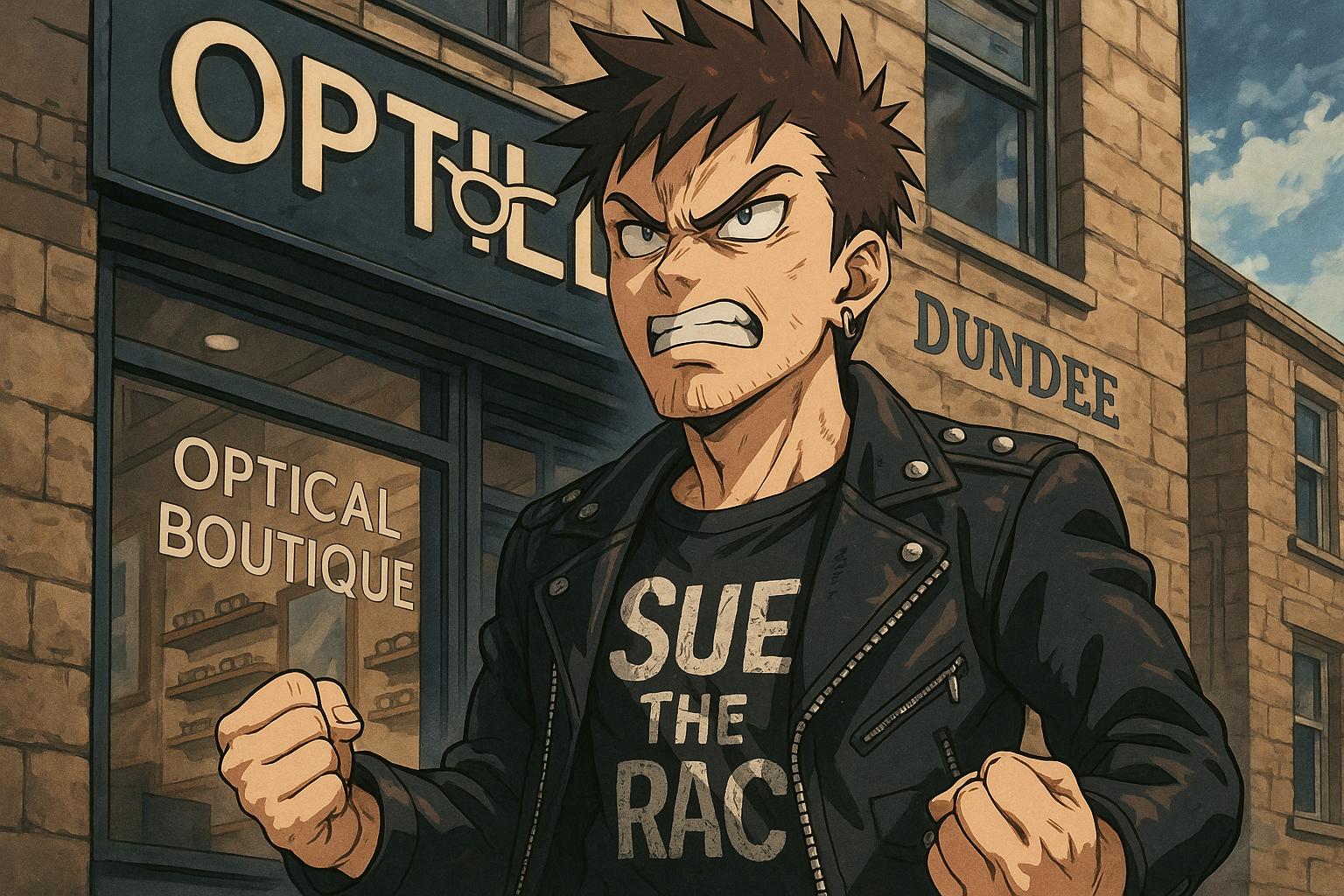This week, a long-standing business in Dundee found itself at the centre of a legal dispute involving one of punk rock's most iconic bands. The optical boutique previously known as Spex Pistols has been forced to rebrand as Land O’Spex following a cease and desist order from the Sex Pistols. The band cited similarities between its logo and that of the glasses shop, claiming potential consumer confusion. Richard Cook, the shop's owner, expressed his dismay, stating, “I just don’t have the resources to challenge their action in any way…we’re a wee spectacle shop in the smallest street in Dundee.” This incident highlights the growing trend of smaller local businesses clashing with larger, more established brands over intellectual property rights.
The case of Spex Pistols is but one of several notable copyright disputes affecting businesses in Tayside and Fife. Among other examples of these contentious battles is the experience of Lisa Chandler, a young make-up artist from Dunfermline. After choosing the name Elsie Cosmetics for her range of false eyelashes, Chandler was met with legal threats from L’Oréal Paris, which claimed the name was too similar to its own product line, Essie. Faced with the formidable challenge of contesting a global giant, Chandler ultimately agreed to rebrand as Elsie by Lisa, but the legal dispute proved costly, leading her to eventually close her business altogether. She lamented that it left a “bad taste in her mouth,” a sentiment that resonates with many small businesses caught in similarly unfair predicaments.
Further complicating this landscape of intellectual property rights is the case involving Will Robertson, a barber in Perth. In an effort to capitalise on the popularity of the BBC series “Peaky Blinders,” he sought to change his shop's name from Sweeney Todd to Peaky Blinders. However, he was compelled to back down when confronted with legal threats from the show's production company, which argued that he was attempting to “free-ride” on their brand appeal. This case demonstrates the fine line small enterprises must navigate when trying to leverage pop culture for business growth.
In another striking example, Dundee artist Zoe Gibson accused the high-street retailer Oliver Bonas of appropriating her unique designs for homeware products, claiming the retailer used her work almost wholesale. Despite her repeated attempts to resolve the issue with the company, both she and her collaborator CommonRoom reported being ignored, raising questions about the accountability of larger corporations when it comes to respecting the intellectual property of individual creators.
Contrastingly, D&G Autocare, a garage chain from Fife, found success in its trademark dispute against the luxury fashion brand Dolce & Gabbana. After initially opposing D&G Autocare’s application to register its name—citing potential consumer confusion—the Italian firm inadvertently missed the deadline to formalise its challenge. As a result, the Fife company retained its trademark, offering a glimmer of hope for smaller firms battling similar giants.
The fast-food chain KFC also made headlines for its heavy-handed approach toward a small takeaway, the Titanic Pizza Company in Carnoustie, which offered a meal under the name "Family Feast." KFC’s legal threats were met with public backlash and ultimately dropped, highlighting how consumer sentiment can influence corporate decisions in copyright matters. A similar legal tussle occurred between Yoko Ono and the owner of Lennon’s Bar in Dundee, who was forced to comply with a request to remove all references to Beatles memorabilia after being warned of legal action. Such examples raise ethical questions around the protection of intellectual property in a way that stifles creativity and local entrepreneurship.
Finally, Glencross Motors faced legal action over a cheeky sign that read “wheel buy any car,” closely mirroring the branding of the major car-buying service We Buy Any Car. Although the lettering was different, the implications of trademark infringement were serious enough for Glencross to remove the sign, reflecting the anxiety smaller businesses must feel when pitted against larger corporate entities.
These copyright disputes illustrate not just the pressing issues of intellectual property but also the broader implications they hold for local businesses striving to carve out their identity in a competitive marketplace. Whether adopting a brand new name or reworking their offerings, these businesses often face the daunting reality of navigating a legal landscape that appears disproportionately skewed in favour of larger corporations.
Source: Noah Wire Services
